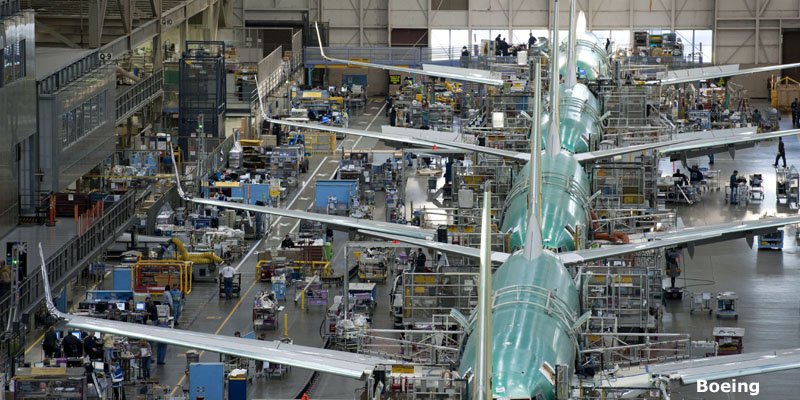Boeing is looking to resell new aircraft originally destined for Chinese airlines, which have been affected by increased tariffs between the United States and China. The company has already repatriated three planes and plans to offer dozens of units to new buyers in markets such as India, Latin America, and Southeast Asia.
A Preventive Move Amid Trade Tensions
Aware of the economic impact of storing aircraft without buyers, Boeing decided to avoid stockpiling planes, as it experienced during the 737 MAX delivery freeze in China. CFO Brian West explained during an analyst call that demand exists in the current market: “Customers are calling, asking for more aircraft.”
Rising Tariffs Escalate Tensions
Tensions between the world’s two largest economies intensified this month when the U.S. raised base tariffs on Chinese imports to as high as 145%. In response, China imposed a 125% duty on U.S. products. As a result, several Chinese airlines informed Boeing they would not accept the ordered aircraft, as confirmed by CEO Kelly Ortberg.
→ BOC Aviation Places Mega Order for 120 Airbus and Boeing Aircraft
An Indirect Message to Beijing and Washington
Industry analysts interpret this move as a warning about the negative effects of the trade conflict, especially as airlines compete for capacity and Boeing works to recover from recent crises. Although Washington has shown willingness to ease tensions, the situation remains volatile.
Alternative Markets and Operational Challenges
India, Latin America, and Southeast Asia emerge as potential destinations for these aircraft, but discussions are still in early stages. Air India, through its low-cost subsidiary Air India Express, is reportedly among the interested parties.
However, reconfiguring already manufactured planes is neither simple nor cost-effective. According to Leeham News, adapting cabins or other customized components can cost millions and require complex contract renegotiations.
China: Latent Demand and Internal Restrictions
Despite the conflict, Chinese airlines need new aircraft to meet domestic demand and comply with fleet age restrictions. Still, China has urged the U.S. to remove tariffs while delaying key purchasing decisions amid a tense geopolitical climate.
Repatriation Underway
Boeing’s move marks a contrast with previous approaches. This time, the company refuses to keep building planes for customers who won’t receive them. In the past week, two jets bound for Xiamen Airlines returned from China to Seattle. A third 737 MAX, originally intended for Air China, flew from Boeing’s completion center in Zhoushan to Guam, part of its delivery route back to the U.S.
That aircraft had left Seattle on April 5, between Trump’s initial tariff announcement and Beijing’s implementation.
Boeing had planned to deliver around 50 new aircraft to China this year, according to West. It is now exploring options to remarket 41 already built or in production.
Airbus Looms as a Competitor
China accounts for roughly 10% of Boeing’s commercial portfolio, and the company has lost ground to Airbus in recent years. The European manufacturer has been in intermittent negotiations for a mega-order of up to 500 aircraft, though any decision is delayed by geopolitical uncertainty, according to industry sources.
Airbus has remained silent, stating it does not comment on ongoing or potential commercial negotiations.
It remains unclear how the U.S.-China rift will affect the European manufacturer.
Related Topics
Embraer Closes First Quarter of 2025 with Record $26.4 Billion Backlog
Embraer to Offer Intelsat’s High-Speed WiFi System During E-Jet E2 Production
Embraer Increases Deliveries by 20% in First Quarter of the Year
Virgin Australia Unveils Interior Design of New Embraer E190-E2 Aircraft

Plataforma Informativa de Aviación Comercial líder en América Latina.



